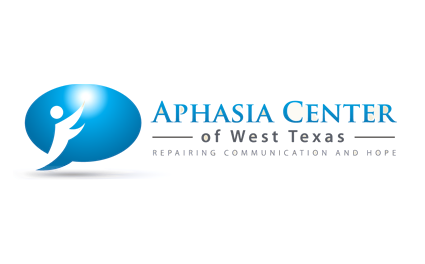Earlier this week, Bruce Willis, known for his roles in the movies “Die Hard” and “Pulp Fiction”, chose to step away from his movie career after being diagnosed with aphasia.
While the announcement has shocked fans it has also cast a spotlight on the devastating communication disorder.
A news release from the Aphasia Center of West Texas detailed a study from Aphasia Access found that 75 percent of people affected by aphasia do not return to employment.
Aphasia Center of West Texas Program Director Beth Crawford says that aphasia affects about one in every 250 people in the Permian Basin and that it is always due to brain injury.
While hearing about Willis’s diagnosis is hard, Crawford is hopeful that it’ll help get the word out and educate those who do not know what aphasia is.
“I think just hearing the word coming from the media is an important thing to note,” Crawford said. “We’ve gotten a response when we try to educate people about aphasia that it is people either aren’t interested (in learning about it) or it’s too complicated. We’re thrilled that the word is being heard because so many of our West Texas neighbors suffer from aphasia and it’s affirming to them hearing the word being said in the mainstream media.”
Crawford said that aphasia often suddenly is acquired by stroke but may also arise from head trauma, infection or more slowly in the case of brain tumor or primary progressive aphasia which is a neurodegenerative disease.
Crawford says more people have been asking her about aphasia since the news about Willis broke.
“There were lots of details of the story that people were curious about,” Crawford said. “We’ve spent years educating people in West Texas about aphasia and through our awareness events and concerts and the work that we do at the center. Just having somebody who is well-known to the common public, being diagnosed with it, it makes people curious and it makes people ask questions. They care about the people they know about so I’ve gotten lots of questions from family and friends in the last 24 hours about what is aphasia and what’s going to happen to Bruce Willis.”
One of the questions involves cognitive concerns.
Crawford wants the public to know that aphasia doesn’t necessarily go along with cognitive decline.
“People with aphasia are competent and intelligent and capable of making their own decisions and making their own judgments,” Crawford said. “In certain cases, there can be a narrow degenerate process known as primary progressive aphasia that can come on slowly over time. It’s called a primary aphasia because it starts in the language networks of the brain and then continues to progress over time. Then, it can lead to cognitive decline. But the aphasia in its early form, it doesn’t go along with the cognitive decline. I want people to understand that their intelligence is intact. If cognitive decline happens, it’s because of a disease process that is beyond aphasia.”
As the second independent aphasia center in North America, the Aphasia Center of West Texas has been spreading its mission to improve the quality of life for individuals and families living with aphasia by overcoming communication barriers at home and in the community.
The Aphasia Center promotes awareness and understanding of aphasia and offers weekly groups for people coping with the condition. The center’s goal is to help individuals, as well as those important to them connect, communicate and live well in spite of aphasia.
The nature of the disorder makes it difficult to have a spokesperson for aphasia.
“When people get aphasia, they lose their ability to advocate on their own behalf and speak on their own behalf,” Crawford said. “Getting the word out, you have Michael J. Fox who has multiple sclerosis but people with aphasia, it robs them of their ability to do that and that can be a real hurdle when it comes to trying to educate the public. So with the Bruce Willis news, we share concerns for him and his family because we know of the gravity of what he’s dealing with. We’re grateful that he shared the news with the public so we can shed light on this and people become more aware of it.”
The Aphasia Center will host its annual Aphasia Awareness Concert on May 6 at the Horseshoe Amphitheater. The event will feature Journey USA and is free to the public.
“It’s such a fun night,” Crawford said. “Our sponsors make it possible and we’re able to invite the public to come at no cost so it’s free admission. You also have an opportunity to purchase a sponsorship. We have a ton of fun and we have a small portion of the evening where we talk about aphasia and what it means to someone who’s living that life. We raise awareness and have a lot of fun.”
For more information on the event and for sponsorship, visit https://aphasiawtx.org/.
If you go
- What: Aphasia Awareness Concert
- When: 7:30 p.m. May 6
- Where: Midland Horseshoe Amphitheater




